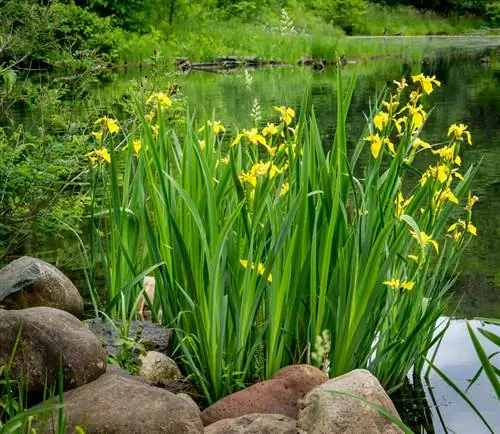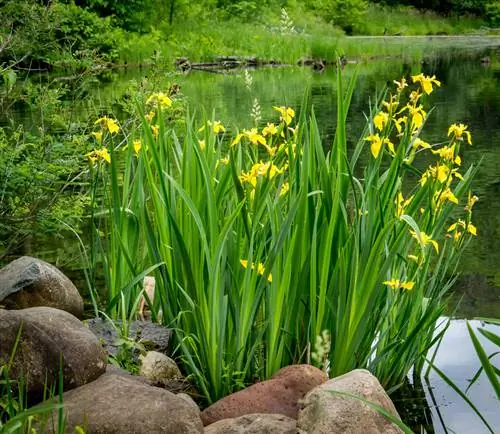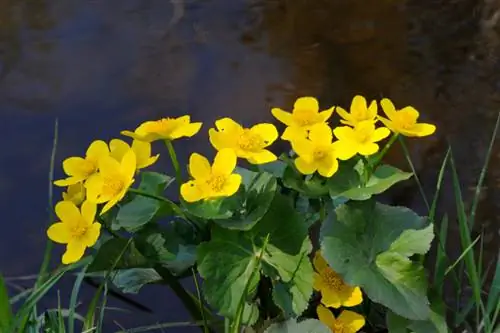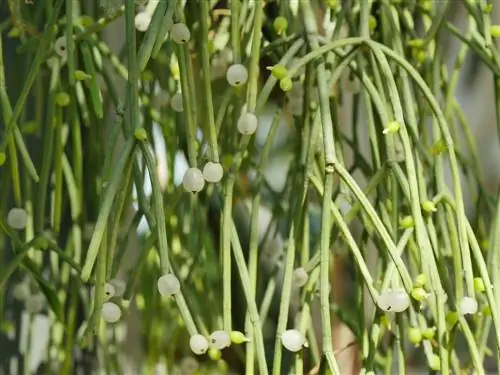- Author admin leonars@hobbygardeners.com.
- Public 2023-12-16 16:46.
- Last modified 2025-01-23 11:20.
Once planted correctly, irises require little care in your own garden. However, you should definitely pay attention to the location requirements of the respective subspecies so that there are no deficiency symptoms or a less than magnificent flowering period.

What are the basics of iris care in the garden?
Iris care includes moderate watering in dry conditions, infrequent fertilization before flowering, occasional loosening of the soil around the rhizomes and dividing to propagate and stimulate flower formation. Irises are hardy and do not require any additional winter protection.
How much water does the iris need?
Iris species can be differentiated between the following subcategories:
- the Bearded Iris
- the steppe iris
- the swamp iris
While you should plant the types of swamp iris in soil that is as moist as possible, the steppe iris and the decorative bearded iris can also tolerate very dry locations. Since the sun-loving plants can store a lot of moisture in their tubers, watering by the gardener is only necessary during long dry periods or when growing in a pot.
How often should the iris be transplanted?
As long as your irises feel comfortable in one location and produce enough flowers, you don't necessarily need to transplant them. However, division in conjunction with transplanting is a suitable measure for propagation and to stimulate rotten Irish clumps to grow new roots and form flowers.
When and how is the iris cut?
Unless the roots are pruned, you do not need and should not cut back the leaf mass of the iris in autumn. However, if you shorten the fine roots on the tubers when dividing, you will also have to shorten the leaves by about half to ensure a balanced energy balance of the plants.
Does the iris need care and fertilization?
In a suitable location, the clumps of the iris can develop their floral splendor for up to ten years or even longer without any special care. As a care measure, you can loosen the soil around the rhizomes a little from time to time. However, you should not dig too deep so as not to damage the fine roots. Irises also grow on extremely poor soils, but can be fertilized with a complete fertilizer (€47.00 on Amazon) directly before flowering.
How are irises overwintered?
Irises are hardy and can easily overwinter outdoors in this country. However, they must not be covered with mulch or other winter protection, otherwise there is a certain risk of rot.
Tips & Tricks
Dividing the rhizomes can give the irises a boost to produce more flowers, but immediately after division it can take one to two years until they bloom.






